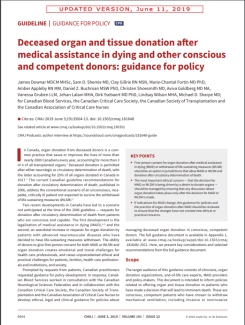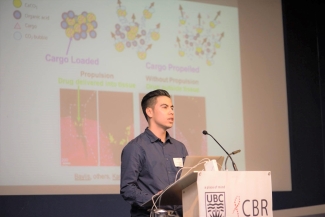A team of experts gathered by the International Collaboration for Transfusion Medicine Guidelines has developed new clinical guidelines and accompanying patient and physician resources for Fetal and Neonatal Alloimmune Thrombocytopenia (FNAIT) – a potentially devastating illness in fetuses and newborns.
A new publication in CMAJ ( Canadian Medical Association Journal ) aims to help health care teams navigate clinical issues surrounding organ and tissue donation by patients who choose to donate after medical assistance in dying (MAID) or withdrawal of life-sustaining measures. In collaboration with...
The Centre for Blood Research’s symposium was held in Vancouver, British Columbia in April. Featuring talks from world-class researchers, trainees and patients, the Norman Bethune Symposium provided attendees with the perfect blend of information and inspiration.
The ability to genetically modify a cell is a powerful tool. Genetically modified cells have advanced our understanding of how the body works and how diseases develop. They are currently used to treat a range of diseases, from cancers to bleeding disorders. Yet, not all cells are easily modified. Dr. Stefanie Novakowski’s joint 3rd place entry to our Lay Science Writing Competition explains more.



